According to a new study published Dec. 16, small, unique
anti-body-like proteins known as VNARs, which are derived from shark immune
systems, can prevent the virus that causes COVID-19, its variants, and related
coronaviruses from infecting human cells.
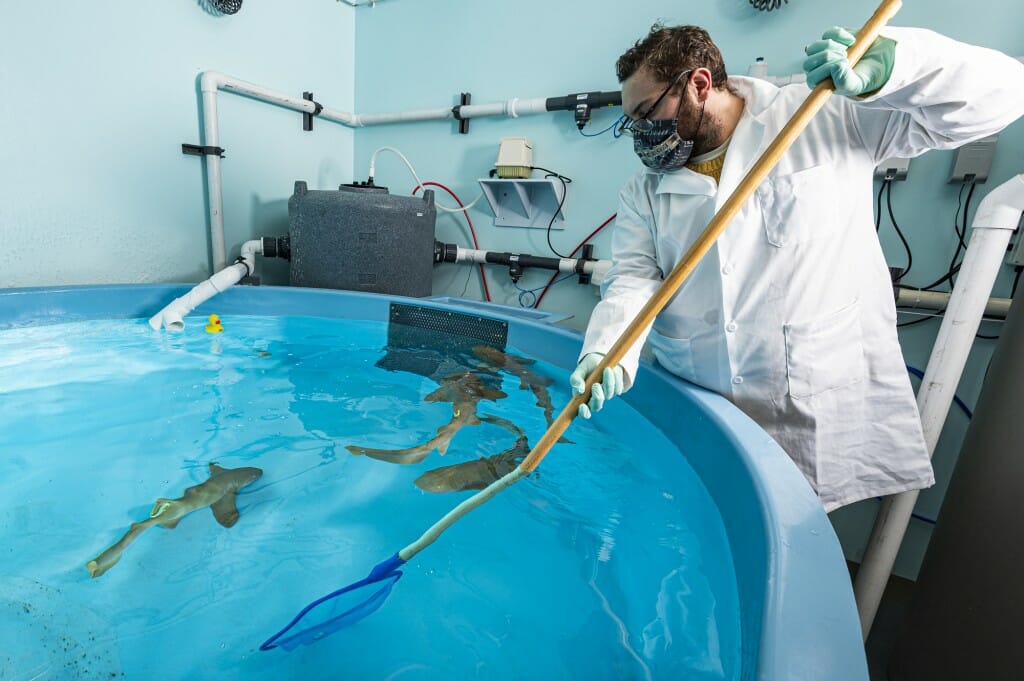
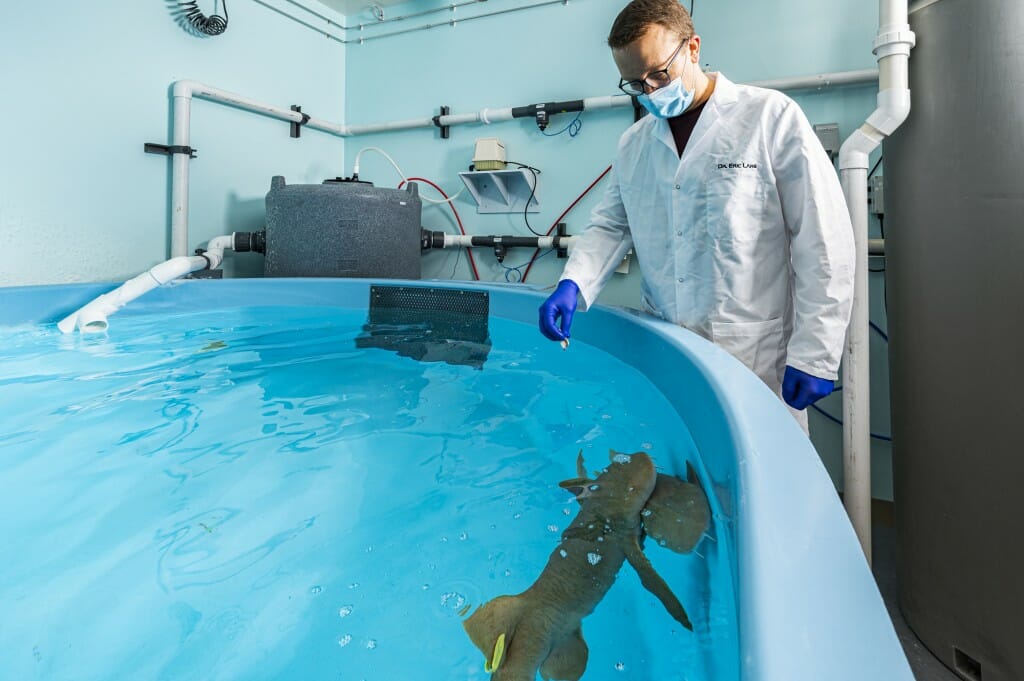
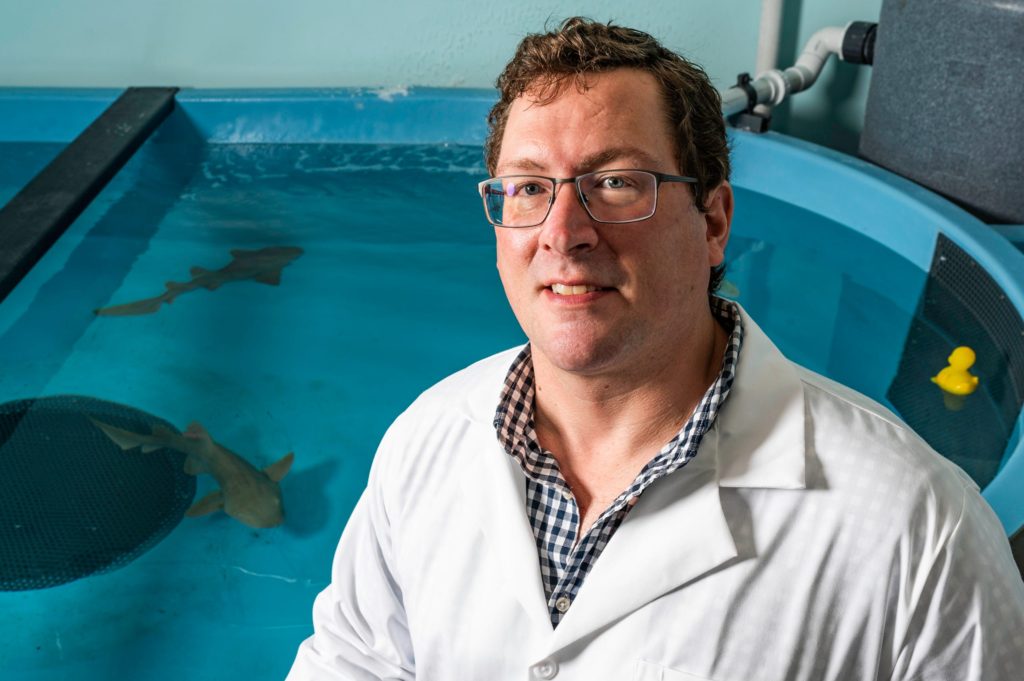
. “What we’re doing is putting together an arsenal of shark VNAR therapeutics that could be used in future SARS outbreaks as a sort of insurance policy.” Researchers from the University of Minnesota and Elasmogen, a bio-medical company based in Scotland that is developing therapeutic VNARs, collaborated with LeBeau and his lab in the School of Medicine and Public Health. Nature Communications published the team’s findings. Elasmogen’s large synthetic VNAR libraries were used to isolate an-ti-SARS-CoV-2 VNARs.
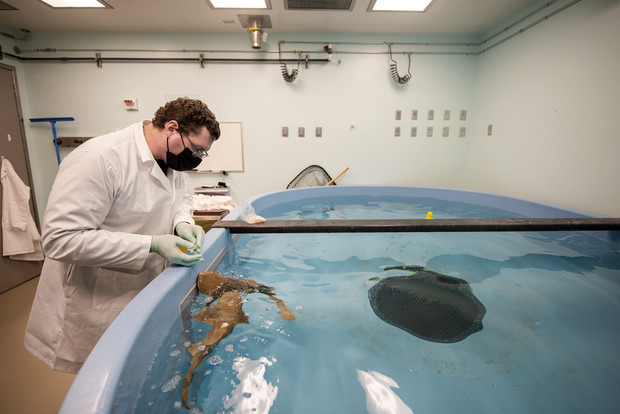
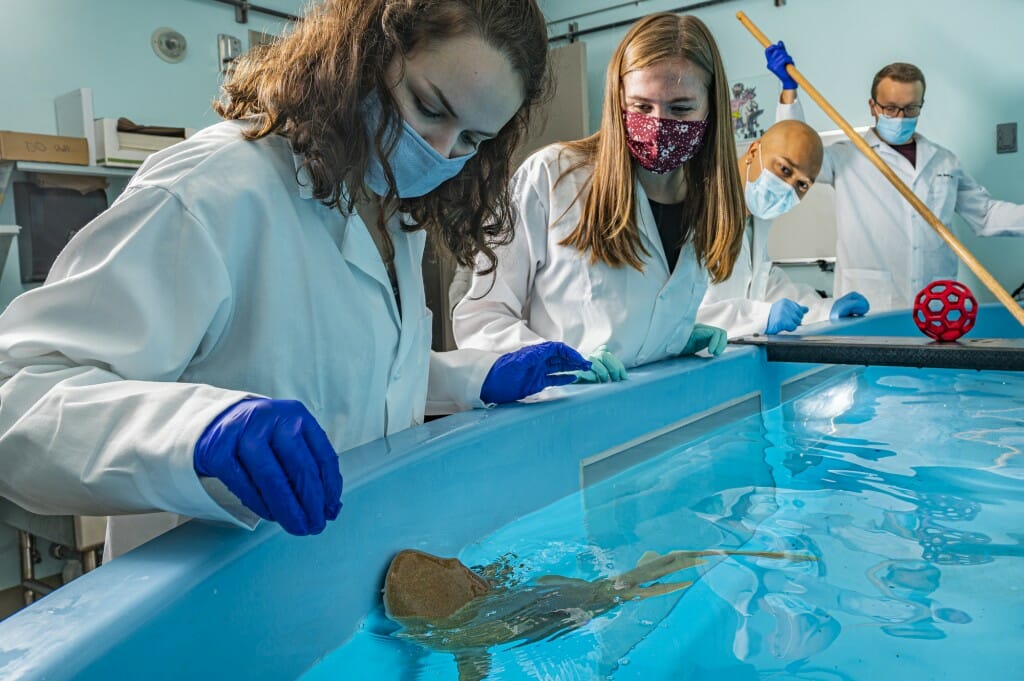
VNARs. This new class of drug is less expensive and easier to make than human antibodies, and it can be delivered into the body in a variety of ways, but it has not yet been tested in humans. LeBeau is also looking into how shark VNARs can aid in cancer treatment and diagnosis. Vaccines are the cornerstone of protection against SARS-CoV-2 and other coronaviruses in the future. However, some people, such as those with weakened immune sys-tems, do not respond well to vacci-nation and may benefit from other treatments, such as antibodies, which is why research into these treatments is ongoing.
This work was supported in part by the National Institutes of Health (grants RO1 CA237272, RO1 CA233562, R01 CA245922, T32 HL007741, NIH T32 A1055433, R01 GM088790, R35 GM118047, P01 CA234228, P30 GM124165 and S10 RR029205) and in the U.K. by Elas-mogen Ltd. and funding from Scot-tish Gov RAPID RESEARCH IN COVID-19 PROGRAMME COV/AB-N/20/01.
